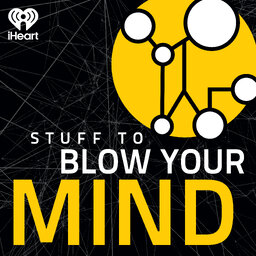Dreamfall into the Dark, Part 1
The wonders and terrors of the dreaming mind do not always flee completely with the dawn. At certain times and places in history, it seems that dreams suddenly ascend to new heights of cultural fascination. In this Stuff to Blow Your Mind series, Robert and Joe explore periods when the eye of culture fixes on the dream world.
In 1 playlist(s)
Stuff To Blow Your Mind
Deep in the back of your mind, you’ve always had the feeling that there’s something strange about re…Social links
Follow podcast
Recent clips

From the Vault: Mystery Cults, Part 3
1:03:47

Weirdhouse Cinema Rewind: Forbidden Planet
1:34:55

From the Vault: Mystery Cults, Part 2
53:07
 Stuff To Blow Your Mind
Stuff To Blow Your Mind